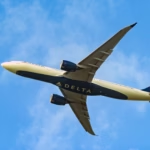Ryanair’s decision to ban paper boarding passes from November 12 has sparked pushback in Portugal, where the national aviation authority ANAC says passengers must still be allowed to fly with a printed version of their boarding pass and cannot be charged for it. Under the airline’s new guidelines, all passengers are required to download the Ryanair mobile app, check in through it and present a digital boarding pass at the airport.
Ryanair states on its website that it has moved to 100% Digital only Boarding Passes and will no longer accept printed versions. Travellers who fail to show a digital pass can face fees of up to €55.
The company says exceptions will be made when phones are lost or out of battery, allowing passengers to print a boarding pass at the airport free of charge, but only if they have checked in online before arriving at the airport.

Concerns for Senior Passengers and Certain Routes
The digital only boarding pass policy raises concerns for certain routes. Morocco, a popular Ryanair destination, requires all travellers to have a paper boarding pass for security reasons. Ryanair instructs passengers to check in online and “present their digital boarding pass at the airport to collect a printed one,” a rule that could lead to long queues at check-in desks.
Portugal’s aviation regulator, ANAC, has openly opposed the ban, arguing that passengers who rely on paper boarding passes including older people and those without smartphones must not be penalized. According to ANACOM, Portuguese national communication authority, Portugal ranks 4th in EU27 for non-use of internet, with 14.2% of people not using internet and vast majority of this number not being able to.
Other European airlines like British Airways, EasyJet, and Jet2, all allow their passengers to use a paper boarding pass while only Wizz Air has implemented a digital-only boarding pass policy, with fees up to €40.
In Portugal, ANAC ordered Ryanair to continue providing paper passes without any additional fees and said it would monitor the airline to ensure compliance, especially during the busy festive period.
Ryanair defends the change as both greener and more efficient: the airline says the switch will save about 300 tonnes of paper a year, speed up boarding but stated it will follow the regulator’s instructions in Portugal.
What is your opinion on this? Let us know in the comments.









